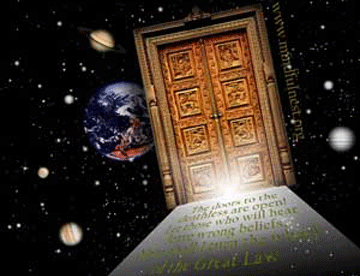
Los Angeles, CA (USA) — What goes around comes around. You reap what you sow. The idea that one’s experiences are the fruition of what a person has done, and that what a person will experience tomorrow is the result of actions he or she takes today, is an ancient concept that spans culture.
It probably arose with farming, and as the earth nourished and preserved our ancestors, they saw that like seeds of wheat, seeds of experience could be cultivated and nurtured.
The ancient Greeks called it dike, and its goddess took the form of justice. Through the action of dike, a hero would fall to his fate or be raised to his destiny. The ancient Celts wove the concepts of cause and effect into the myths carried to us today through symbols of ground, path, and fruit.
The Bible alludes to cause and effect in the book of Job: “I have seen people plough fields of evil and sow wickedness like seed; now they harvest wickedness and evil.” The Buddhists and Hindus, most notably, call this phenomena karma.
To Buddhists, karma is simply a term used to describe cause and effect, nothing more. I am emphasizing this because mainstream culture is filled with misconceptions about karma from the Buddhist perspective. The biggest misconception is that a belief in karma means you believe that you’ll return as a goat if you aren’t good in this life.
To Buddhists, belief in karma can be tested, whereas belief in reincarnation can only be established by logical inference. In other words, a belief in karma doesn’t necessarily mean a belief in reincarnation. The second big misconception is that karma is a bad thing. It isn’t: karma can be positive, negative, or neutral. It is simply a way to describe cause and effect.
Karma, from Sanskrit origin, means action. It implies any action a person can take, from thoughts to speech to physical action (these are called the three doors of the self). The concept is that each action creates a causal “seed” for the person to experience a similar thing at some point in the future. Similarly, each experience a person undergoes can be seen as the result of an earlier action.
While one’s karma may be a bad day, karma is also the experience of health, youth, and fortune. Life in its entirety is karma, a continuation of actions and results that began at some point that you or I cannot see.
The fact that so many cultures have held the belief that, to a certain extent, one’s actions cause one’s experiences, gives the idea some weight. The beauty of the karma is that you can test it out: if you see that it works, great. If it doesn’t, great – ditch the idea and move on to something that does work.
“We are what we think.
All that we are arises with our thoughts.
With our thoughts we make the world.
Speak or act with an impure mind
And trouble will follow you
As the wheel follows the ox that draws the cart.”
(Byrom, “Dhammapada”)
By Shelley Kyle, LA Buddhism Examiner
Source: www.buddhistchannel.tv




